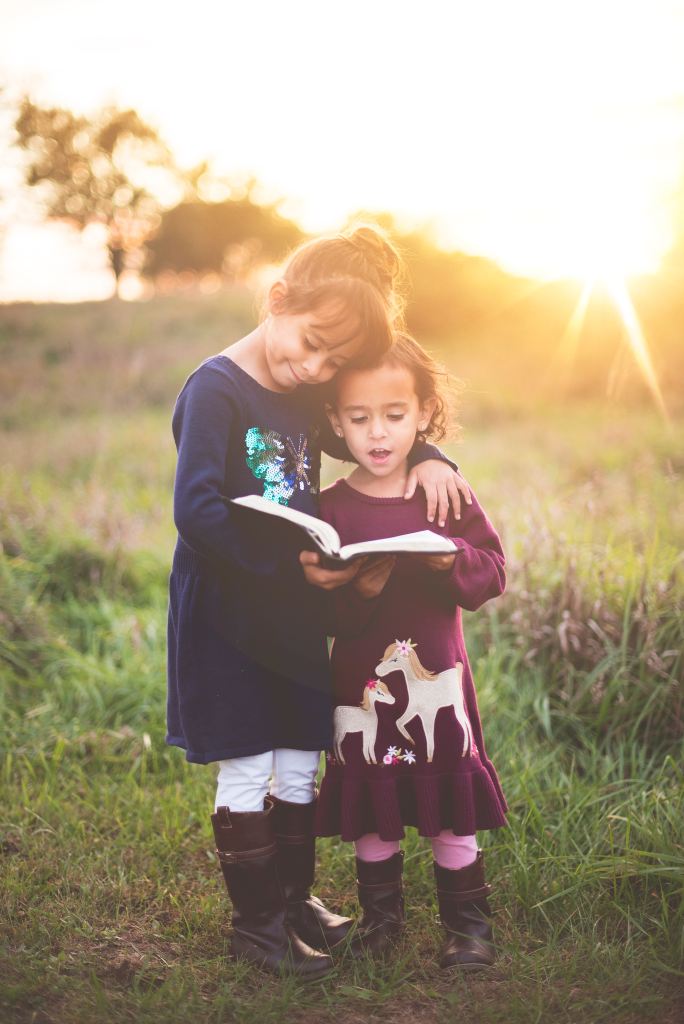What Does Your Birth Order Say About You?
- Category: Recipes & Wellness
- Posted On:

You’ve taken a handful of personality tests in your life; you may have even read a self-help book or two. But have you ever considered how much your birth order plays into your personality?
Dr. Kevin Leman, a psychologist, and author published a book called “The Birth Order Book: Why You Are the Way You Are” He and other psychologists believe that birth order plays a big role in who you are—whether you’re the first-, middle-, last-born, or the only child. Here’s what your birth order has to say about you.
Traits of The Firstborn
The firstborn child basks in their parent's love and attention; they often benefit from this experience emotionally. Firstborns can grow up feeling loved with a sense of security and self-confidence. This helps them go out into the world and become a responsible leader. Many of our presidents and heads of corporations have been firstborns.
As the leader of the pack, firstborns often tend to be:
- Reliable
- Structured
- Cautious
- Controlling
- Achievers
Firstborns bask in their parents’ presence, which may explain why they sometimes act like mini-adults. They’re diligent people who frequently want to be the best at everything they do.
Famous firstborns: Beyoncé Knowles-Carter, Emma Watson, Bill and Hillary Clinton, James Franco, Kate Middleton, J. K. Rowling, and Oprah.
Traits of The Middle Child

The middle child may feel displaced with thoughts like, ‘I’m not the oldest… I’m not the youngest… Who am I?’ This hierarchical floundering leads middle children to make their mark on their peers since parental attention often goes to the baby or firstborn. Middle children learn to compromise very quickly but tend to be obsessed with fairness.
These are a few characteristics of middle children:
- Thrives on friendships
- Has a large social circle
- Somewhat rebellious
- Peacemaker
They’ve also grown up in a unique position that has forced them to be flexible and advantageous. Some researchers claim that middle children make great entrepreneurs and are most likely to be successful.
Famous middle children: Bill Gates, Warren Buffett, Britney Spears, John F. Kennedy, Kim Kardashian, and Madonna.
Traits of The Youngest

The youngest children tend to be the most free-spirited due to
their parents’ increasingly laissez-faire attitude towards parenting the second (or third, or fourth…) time around. The baby of the family tends to be:
- Fun-loving
- Uncomplicated
- Outgoing
- Rule benders
- Attention seekers
Some researchers suggest that the youngest child can take on traits similar to the eldest, such as responsibility, in an effort to be taken seriously. They also tend to take more risks than their siblings, choosing sports like wrestling or football over other types. As adults, the youngest children turn into great charmers who frequently find jobs in sales, entertainment, or self-employment.
Famous last-borns: Cameron Diaz, Eddie Murphy, Jennifer Lawrence, Johnny Depp, Ellen DeGeneres, Kylie Jenner, and Prince Harry.
Traits of The Only Child
“Onlies” are sometimes considered uber-firstborns. They are confident, incredibly detailed, well-spoken, and tend to do well in school. Because they spend so much time around grown-ups, they often pick up the traits of “mini-adults”. Only children tend to be:
- Independent
- Organized
- Perfectionist
- Private
Only children have never had to compete for their parent's attention or share toys, so they do run the risk of self-centered habits. They’re also used to feeling important and may have a hard time when things don’t go their way. Since their role models are mostly adults, onlies are even more susceptible to perfectionism than firstborns.
Famous only children: Eleanor Roosevelt, Leonardo DiCaprio, Samuel L. Jackson, Leonardo Da Vinci, Natalie Portman, and Tiger Woods.
A Few Exceptions and Considerations
Take the suggestions above with a grain of salt, for a couple of reasons. First, there are many socioeconomic factors that influence how we develop as people: gender, location, education, and socioeconomic class among them.
Dr. Leman also points out that the birth order rules are not so cut-and-dry. One exception he gives is that if there’s a 5+ year gap or between children, it’s like a whole new family formed (and the dynamics start over). Gender can also impact birth order personality types, according to Leman. If there’s only one son in a family of all girls, then that boy might have more first-born or only-child tendencies (since he is the only boy).